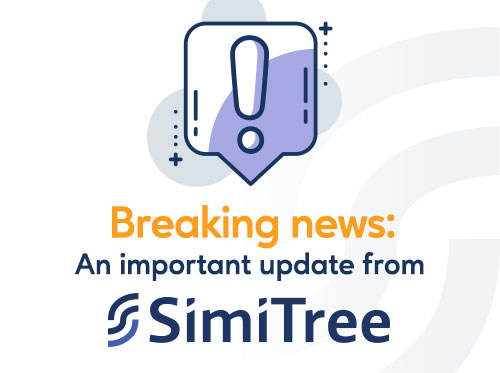Clinicians and healthcare organizations should take appropriate action now that the ongoing spread of monkeypox virus in the United States has been declared a Public Health Emergency (PHE), SimiTree consultants say.
U.S. Department of Health and Human Services Secretary Xavier Becerra officially declared the PHE on Thursday, Aug. 4. Read the PHE announcement.
Becerra’s declaration followed days of speculation and confusion about whether a PHE was already in effect, driven largely by an earlier World Health Organization (WHO) announcement that the monkeypox outbreak has become a public health emergency of international concern. The WHO reports cases of monkeypox in 87 countries.
In the U.S., cases of monkeypox topped 6,600 this week, with cases reported in all states except Montana and Wyoming, as well as in Washington, DC, and Puerto Rico.
Declaring monkeypox a PHE in the U.S. makes it possible to use funding, resources and regulatory flexibilities as needed to respond to the virus. A PHE enables the Secretary to enter contracts for treatments or other necessary medical sullies and equipment. Public health emergencies last for 90 days but may be renewed by the Secretary each 90 days as often as needed, as in the case of COVID–19.
“The Health and Human Services Secretary has urged everyone to take monkeypox seriously,” said Debra Grott, SimiTree Senior Manager, Compliance, Regulatory and Quality. “Home health and hospice patients may be at particular risk for disease severity and adverse outcomes, as immunocompromised individuals are included in the high-risk group identified by the CDC.
“Home health and hospice organizations will need to respond with vigilance, staying abreast of all updated guidance for clinicians from the Centers for Disease Control. They’ll also need to employ robust infection control measures and review the organization’s Emergency and Pandemic Plans for necessary updates,” Grott said.
She and other SimiTree consultants offer the following guidance for organizations.
Clinical guidance
- Know clinical considerations. On July 29, the CDC made available updated guidance for clinicians summarizing clinical considerations for preventing, diagnosing, and managing monkeypox. The new clinical guidance addresses treatment and preventative considerations for people with HIV, individuals who are immunocompromised, children, adolescents, and people who are pregnant or breastfeeding, all of whom may be at risk for increased disease severity and adverse health outcomes associated with monkeypox infection. Clinicians should be familiar with unique clinical considerations for monkeypox in these patient populations. The latest CDC Health Update regarding monkeypox can be found here.
- Stay abreast of changing guidelines. Updates from the CDC occur frequently in developing PHE situations. Review the CDC site regularly for changes. Clinical guidance may be found here.
- Ensure clinical vigilance. A broad diagnostic approach is encouraged to distinguish monkeypox virus infection from other causes of fever and rash illness. Testing should be performed on persons for whom monkeypox is suspected based on clinical presentation or epidemiologic criteria. Clinicians should consult their state or territorial health department (State Contacts) or CDC through the CDC Emergency Operations Center (770-488-7100) as soon as monkeypox is suspected.
Compliance considerations
- Review Infection Control Program and policies. Make sure the Infection Control Program measures are current, aligned with updated guidance from the CDC and be aware of federal, state and area specific guidance on trends and transmission. Provide staff with appropriate education regarding transmission and preventative measures.
- Update the organization’s Emergency and Pandemic Plans. Monkeypox will need to be added to the All Hazards Risks and Vulnerabilities Assessment in the Emergency and Plans, as an Emerging Infectious Disease (EID), according to the Centers for Medicare and Medicaid Services (CMS) Updated Guidance for Emergency Preparedness, Appendix Z , State Operating Manual (SOM). The Appendix Z guidance may be found here.

